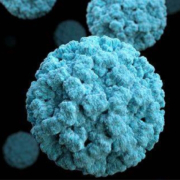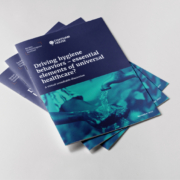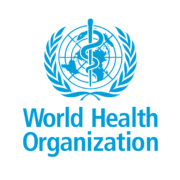Transatlantic norovirus surge has hygiene experts on high alert

Cases of the contagious norovirus are on the rise in the United States and in the United Kingdom and hygiene experts are advising the general public to resume its COVID-19-level hygiene habits to prevent the spread.
Norovirus, also known as the “winter vomiting bug” causes sickness, fever and diarrhoea. According to the Centers for Disease Control and Prevention, it can be caught via direct contact with an infected person, by consuming contaminated food or drink, or touching a contaminated surface and then putting unwashed hands into the mouth.
“The simplest way of ensuring you don’t get norovirus – which can render a person unwell for days – is to wash hands thoroughly and regularly,” said Simon Sinclair, Executive Director for the Reckitt Global Hygiene Institute. “This is a habit that should have been maintained after the pandemic but climbing cases of norovirus signify this hasn’t happened and people are unnecessarily falling ill as a result.”
In England, last week cases were reported as being 66% higher than the average case numbers in 2022 with many leading to hospitalisations. In the U.S, state health departments reported 25 outbreaks at the start of 2023, which is said to be twice as many during the same period in 2022.
There is no treatment for norovirus but the illness usually runs its course after two to three days. In more severe cases and where extreme dehydration has occurred, patients may have to seek hospital care.
“As with most illnesses, the elderly and those with underlying conditions are at higher risk of contracting norovirus,” said Simon. “In order to protect them and prevent hospitalisations in already overburdened health care systems, hand washing must be maintained.”
In the case of norovirus, alcohol gels don’t kill the virus.
It’s also important to regularly sanitise surfaces and to wash fruit and vegetables before eating whilst maintaining a distance from others should you exhibit symptoms of norovirus, even in the days following. A person can still be contagious even after their initial symptoms have passed.
“This is the same messaging that was pushed globally during the pandemic and must continue to be pushed. Handwashing isn’t just for pandemic times but for all times and can prevent a multitude of diseases including norovirus, colds, flus, and other gastrointestinal illnesses,” Simon Sinclair concluded.
He called for more investment into awareness raising activities that would highlight the link between improved hygiene and its importance in protecting public health among the general public.
“The general public shouldn’t have been given the opportunity to forget just how critical hygiene is to health. Going forward, more needs to be done both in the UK and the US to ensure the message is resonating: handwashing and hygiene saves lives,”
RGHI’s mandate is to invest in research that better highlights this linkage so that decision-makers globally have more evidence on which to base public health decisions.
“We need to know what barriers stand in the way of regular hand washing – especially in places where there is good access to clean water and soap – and what it will take for it to become a habit,” highlighting that cracking this conundrum could save money by reducing the burden on health systems as well as days lost due to sickness.
“Oftentimes we’re waiting for the latest innovations that will transform health care and save lives but one of the simplest weapons against disease is one we in the US and UK already have access to; hand hygiene,” Simon said. “We just need to ensure it is seen globally as the life-saving mechanism it is.”
For more information about RGHI please contact Sarah Roberts sarah_r@mail.RGHI.org









